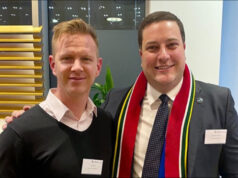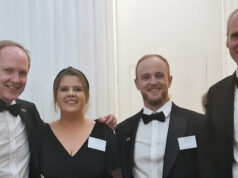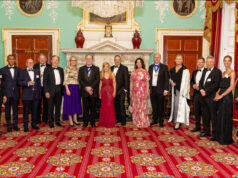We came, we competed, we conquered.
Although we fell shy of our lofty target of 12 medals, our three golds, two silvers and a bronze could be said to be of a similar standing. Team South Africa can be proud of their achievements, especially when you put it in the context of the absolute blowout in Beijing, where only one medal – a silver – was captured.
Consider this time that one of the golds was a world record (Cameron van der Burgh), one was Chad le Clos beating Olympic legend Michael Phelps, and the other a first gold in rowing for South Africa (the coxless lightweight fours), and the context becomes unparalleled. Silvers were picked up by Chad le Clos and Caster Semenya (in her season’s best time), and our bronze came in the form of Bridgitte Hartley in the K1 kayak 500m sprint, quite appropriately on National Women’s Day and our first canoeing medal in Olympic history.
Team South Africa thus had their most successful Olympics since readmission to international sport in Barcelona back in 1992, equalling the number of gold medals from Atlanta in 1996, and our total number of medals in Athens in 2004. We also finished 24th on the medals table, improving on our post-isolation record of 27th in Atlanta.
South African Olympic governing body Sascoc was in no doubt as to the enormity of the achievements from our athletes, stretching far beyond just the medal winners. “It was a tremendous achievement at these Games and credit to an amazing amount of work by all concerned… athletes, coaches, administrators,” CEO Tubby Reddy said.
There were numerous other achievements that didn’t necessarily get the recognition or fanfare they deserved. These included, but are not limited to:
Marc Mundell finished 32nd in the 50km walk, beating the African record; Sunette Viljoen finished fourth in the javelin final; South Africa qualified for the men’s 4 x 400m relay final after a successful appeal against Kenya, who had obstructed one of our runners in the semifinal, and finished eighth ahead of Cuba, in their season’s best time; Burry Stander came fifth in the men’s cross-country mountain bike race, probably one of the most gruelling of all the events; Troydon Prinsloo ended 12th of 25 competitors in only his third international open water event in the 10km marathon swim; Willem Coertzen finished ninth in the decathlon out of 31 contestants; 20-year old Anaso Jobodwana surprised all but himself by landing a spot in the 200m final, coming up against world and Olympic champion Usain Bolt, whom he finished second to in the semifinal; Lehann Fourie finishing seventh in the men’s 110m hurdles final; and Richard Murray finished 17th of 55 competitors in the men’s triathlon.
Additionally, Oscar Pistorius became the first amputee sprinter to compete in the Olympics. He also carried the flag in the closing ceremony. Our hockey teams did admirably too. The women’s team had their best finish in the Games – which included a 7-0 thrashing of the USA – and their world ranking increased from 12th to 10th. The men’s team had close finishes against both Great Britain (2-2) and Pakistan (5-4), but then beat India in a classification match, to finish 11th, one place ahead of their world ranking.
Deputy Minister of Sport, the Honourable Gert Oosthuizen said, “It was our best performance since readmission, and even though our slogan was 12 in 2012, we are halfway there with our six medals and look forward to Rio in 2016. We have reclaimed some of our gold and are taking it back to Africa. Don’t forget, there were many young athletes who didn’t make the cut for Team SA, which augurs well for the future.”
By Rob Flude










